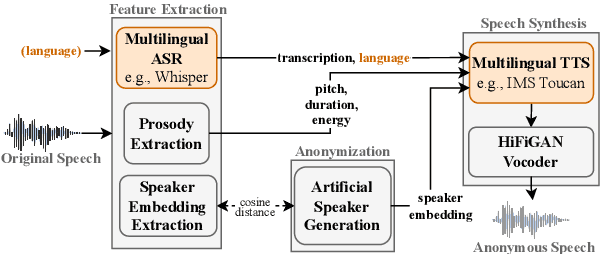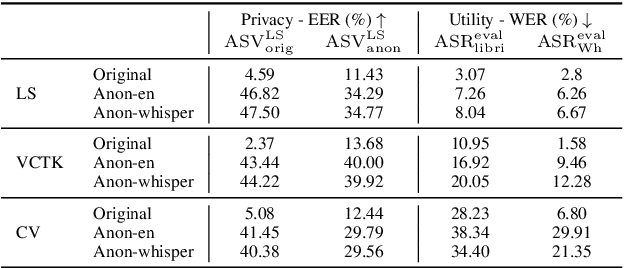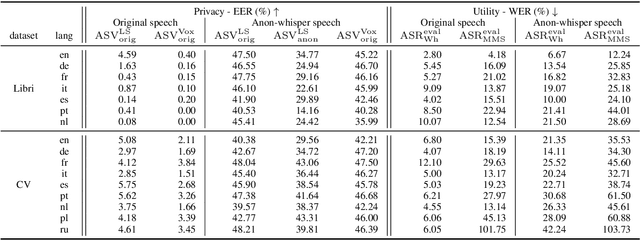Probing the Feasibility of Multilingual Speaker Anonymization
Paper and Code
Jul 03, 2024



In speaker anonymization, speech recordings are modified in a way that the identity of the speaker remains hidden. While this technology could help to protect the privacy of individuals around the globe, current research restricts this by focusing almost exclusively on English data. In this study, we extend a state-of-the-art anonymization system to nine languages by transforming language-dependent components to their multilingual counterparts. Experiments testing the robustness of the anonymized speech against privacy attacks and speech deterioration show an overall success of this system for all languages. The results suggest that speaker embeddings trained on English data can be applied across languages, and that the anonymization performance for a language is mainly affected by the quality of the speech synthesis component used for it.
 Add to Chrome
Add to Chrome Add to Firefox
Add to Firefox Add to Edge
Add to Edge